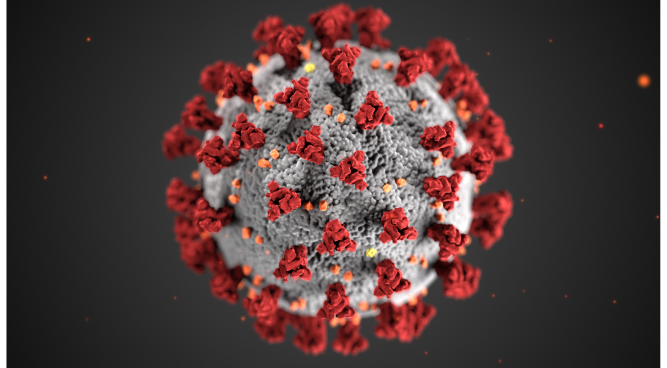Introduction
Are you a victim of GP Failure To Diagnose Lyme Disease Compensation UK? Learn about your legal options for compensation on our expert-written page. Lyme disease is a bacterial ailment that is communicated to humans through tick bites. The UK has witnessed a rise in the number of GP Failure To Diagnose Lyme Disease patients over the past few years. Early diagnosis and restorative of Lyme disease is crucial to prevent long-term health complications.
GP Failure To Diagnose Lyme Disease is pushed by the bacterium Borrelia burgdorferi, which is commonly found in ticks. Ticks are tiny arachnids that provide on the blood of animals, including humans. They are most commonly discovered in grassy and wooded areas, especially during the more hospitable months.
Symptoms of GP Failure To Diagnose Lyme Disease Compensation UK can vary from person to person, but often include a distinctive rash known as erythema migrans, flu-like symptoms such as fever and fatigue, and joint pain or stiffness. If left untreated, Lyme disease can show to more serious health concerns such as arthritis and neurological disorders.
Difficult as its Symptoms
Unfortunately, GP Failure To Diagnose Lyme Disease Compensation UK can be difficult as its symptoms are similar to other illnesses like flu or chronic fatigue syndrome. This means that many patients of Lyme disease go undiagnosed or misdiagnosed for months or even years.
In the UK, GPs play a vital role in diagnosing and treating GP Failure To Diagnose Lyme Disease Compensation UK. However, there have been cases where GPs have failed to diagnose Lyme disease early enough or have misdiagnosed it altogether. This failure can result in patients suffering long-term health complications and financial losses due to medical expenses.
If you believe that your GP Failure To Diagnose Lyme Disease Compensation UK properly, you may be entitled to compensation under UK law.
Compensation claims can help cover medical expenses incurred due to delayed diagnosis or misdiagnosis as well as lost income due to time off work.
It’s important to note that proving negligence on behalf of your GP can be challenging in these types of cases. You will need strong evidence showing that your GP failed to meet their duty of care towards you by not properly diagnosing your Lyme disease. This is where seeking legal advice from a specialist medical negligence solicitor can help.
Incidence and Misdiagnosis of GP Failure To Diagnose Lyme Disease Compensation UK
GP Failure To Diagnose Lyme Disease Compensation UK is a tick-borne illness that affects people worldwide, including the UK. It is compelled by the Borrelia burgdorferi bacterium and can guide to severe health complications if left untreated. In this province, we will discuss the incidence and misdiagnosis of Lyme disease in the UK.
GP Failure To Diagnose Lyme Disease Compensation UK
Lyme disease is the most familiar tick-borne illness in the UK, with an assessed 2,000 to 3,000 cases registered annually. However, this number may be significantly higher due to underreporting and misdiagnosis. The incidence of Lyme disease has been growing over recent years due to various factors such as climate change and increased outdoor activities.
Misdiagnosis of GP Failure To Diagnose Lyme Disease Compensation UK
The symptoms of GP Failure To Diagnose Lyme Disease are often non-specific and can mimic other illnesses such as flu-like symptoms or arthritis. This makes it challenging for doctors to diagnose correctly. Misdiagnosis occurs when patients are diagnosed with another condition instead of Lyme disease or not diagnosed at all.
One reason for misdiagnosis is the lack of awareness among general practitioners (GPs) about GP Failure To Diagnose Lyme Disease Compensation UK. Many GPs do not have sufficient training or knowledge about tick-borne diseases and their symptoms, leading to missed diagnoses or delayed treatment. There are no specific diagnostic tests for early-stage Lyme disease, making it more challenging to diagnose accurately.

Early Diagnosis and Treatment
Early diagnosis and therapy are crucial in preventing long-term complications of GP Failure To Diagnose Lyme Disease Compensation UK. If left untreated or treated late in its progression, it can lead to severe health problems such as chronic fatigue syndrome, neurological disorders like meningitis or encephalitis, joint pain, heart problems and even death.
Symptoms of Lyme Disease and Importance of Prompt Diagnosis
Lyme disease is a tick-borne disease induced by the bacterium Borrelia burgdorferi. It is communicated to humans via the bite of infected black-legged ticks, also known as deer. The manisfestation of GP Failure To Diagnose Lyme Disease Compensation UK can range widely and can sometimes be mistaken for other illnesses, making it difficult to diagnose. However, prompt diagnosis and treatment are crucial in preventing the progression of the condition and reducing the risk of long-term complications.
Symptoms of GP Failure To Diagnose Lyme Disease
The early symptoms of GP Failure To Diagnose Lyme Disease Compensation UK usually appear within 3-30 days after a tick bite. A distinctive skin rash called erythema migrans (EM) is the most common symptom. This rash is a red, circular patch that gradually expands over time, often resembling a bull’s-eye pattern. Other early symptoms include fever, headache, fatigue, muscle aches, joint pain, and swollen lymph nodes.
If left untreated or if treatment is postponed, more severe symptoms may develop. These can include severe joint pain and swelling (particularly in the knees), heart palpitations or irregular heartbeat (Lyme carditis), facial paralysis (Bell’s palsy), meningitis or encephalitis (inflammation of the brain), and cognitive impairment. More about Negligent Chiropractic Treatment Compensation UK
Importance of Prompt Diagnosis
Prompt diagnosis is critical in preventing the progression of GP Failure To Diagnose Lyme Disease Compensation UK and reducing the risk of long-term complications. If left untreated or if medicine is delayed, Lyme disease can cause serious health problems that may need hospitalization or even lead to death in rare cases.
To GP Failure To Diagnose Lyme Disease Compensation UK accurately, doctors typically rely on clinical signs and symptoms as well as laboratory tests. A blood test can detect antibodies produced by the body against Borrelia burgdorferi bacteria but may not always provide conclusive results during early stages when antibody levels are low.
Therefore it’s important to seek medical attention immediately if you suspect a tick has chewed you or if you design any of the symptoms associated with GP Failure To Diagnose Lyme Disease Compensation UK. Early treatment with antibiotics is highly effective in most cases, and the earlier it’s administered, the better the chances of a full recovery.

NHS Complaints Procedure for Medical Misdiagnosis and Compensation Requirements
Complaints about medical misdiagnosis can be made through the National Health Service (NHS) complaints procedure. It is a formal process that aims to resolve concerns, provide an explanation, and improve services. The first phase is to talk to the healthcare provider or practice manager who delivered the care. If this does not determine the issue, a written complaint can be sent to the NHS trust responsible for the service. The trust will investigate and respond within a set timeframe, usually 30 working days.
If there is still discontentment with the outcome of the investigation, an appeal can be made to the Parliamentary and Health Service Ombudsman . The PHSO is autonomous of government and provides a free service to investigate complaints about public services in England. Nevertheless, it should be mentioned that making a complaint does not automatically result in compensation.
Compensation Requirements for Medical Negligence
GP Failure To Diagnose Lyme Disease Compensation UK. Compensation claims for medical negligence are separate from complaints procedures. To claim compensation, it must be proven that there was a infringement of duty of care by the healthcare provider which caused harm or injury. This can include misdiagnosis or delayed diagnosis leading to further illness or injury.
The amount of compensation awarded varies depending on factors such as severity of harm, loss of earnings, cost of care and treatment, and future needs arising from disability or ongoing health problems. There are no fixed amounts for compensation claims as each case is unique. Know More about Child Medical Negligence
Legal Options for Victims of Medical Misdiagnosis
Victims of medical misdiagnosis may choose to pursue permitted action against their healthcare supplier if they believe they have suffered harm due to negligence. To do so successfully, they must indicate that their healthcare provider breached duty of care, which caused them harm.
It is instructed that victims seek legal advice from specialist solicitors who have experience in handling medical negligence cases. They can advise on the strength of the case and the likelihood of success, as well as guide victims through the legal process.
When to Contact Your GP
If you accept you have been misdiagnosed or have worries about your clinical consideration, it is essential to address your medical care supplier as quickly as time permits. This might be your GP or expert specialist. They will really need to get a handle on their finding and treatment plan in additional detail and answer any various types of criticism you could have.
If you are disheartened with their response, you can present a customary inquiry through the NHS grumblings technique. If you acknowledge that there has been remissness which has caused harm or injury, you could wish to search for genuine guidance about making a compensation ensure. More about Medical Negligence Causing Death
Suing the NHS for Misdiagnosis of Lyme Disease: Requirements and Process
Proving Negligence: Requirements for Suing the NHS for Misdiagnosis of GP Failure To Diagnose Lyme Disease Compensation UK
The burden of proof fibs with the claimant. To have a victorious case, you must prove that your GP or healthcare supplier was negligent in their diagnosis or treatment of your condition. This can be demanding, as there are many factors to consider when it comes to GP Failure To Diagnose Lyme Disease Compensation UK.
One of the key requirements for suing the NHS is proving that your GP or healthcare provider breached their duty of care towards you. This means demonstrating that they failed to provide an appropriate standard of care in relation to your symptoms and medical history. You must obtain copies of your medical records and seek expert opinions from specialists in GP Failure To Diagnose Lyme Disease Compensation UK to support your claim.
Another important requirement is demonstrating causation – that is, proving that the negligence on the part of your GP or healthcare provider directly caused harm or injury to you. This may involve providing evidence such as test results, medical reports, and witness statements from other healthcare professionals.

Filing a Claim: The Process for Suing the NHS for Misdiagnosis of GP Failure To Diagnose Lyme Disease Compensation UK
If you acknowledge you have a case for suing the NHS for misdiagnosis of Lyme disease, there are several steps you will need to take. Firstly, you should seek legal advice from a specialist medical negligence solicitor who has experience dealing with cases involving GP Failure To Diagnose Lyme Disease Compensation UK.
Your solicitor will help guide you through the process of obtaining medical records and seeking expert opinions. They will also assist with filing a claim with the NHS using their complaints procedure. It’s worth noting that there are strict time limits involved when it comes to making a claim against the NHS – usually within three years from when you first became aware that negligence had occurred.
Compensation: What You Can Expect When Suing the NHS for Misdiagnosis of Lyme Disease
If your case is successful, the compensation you acquire will depend on the severity of your injuries and their impact on your life. This may include damages for physical and emotional harm, loss of income, and cost of treatment.
It’s necessary to note that compensation is not awarded as a punishment to your GP or healthcare provider, but rather as a means of helping you recover from the harm caused by their negligence. While it can never undo the damage that has been done, it can provide some financial support to help you move forward.
Blood Tests Following Treatment for Lyme Disease: Accuracy and Limitations
GP Failure To Diagnose Lyme Disease Compensation UK is a bacterial infection that is transferred to humans through the bite of an infected contamination that is sent to people through the chomp of a tainted tick. It can cause a scope of side consequences, including fever, cerebral pain, exhaustion, and a trademark skin rash. Blood tests are commonly used to diagnose Lyme disease, but they may not always be accurate. In this section, we will discuss the accuracy and limitations of blood tests following treatment for GP Failure To Diagnose Lyme Disease Compensation UK.
Delayed Antibody Response
Antibodies assembled by the body in response to the infection may take weeks or even months to show up in blood tests. This means that if someone is tested too soon after being infected with Lyme disease, their test results may come back negative even if they have the infection. The Centers for Disease Control and Prevention counsellors waiting at smallish two to four weeks after exposure before testing for GP Failure To Diagnose Lyme Disease Compensation UK.
False Negatives
Even when someone has been infected with GP Failure To Diagnose Lyme Disease Compensation UK for several weeks or months, there is still a risk of getting a false negative result from a blood test. False opposites can occur if the test is taken too soon after infection or if the patient has been treated with antibiotics. Antibiotics can kill off some of the bacteria responsible for causing Lyme disease, which can make it more difficult to detect in blood tests.
It’s important to note that while blood tests are useful in diagnosing many cases of Lyme disease, they should not be relied upon as the sole method of diagnosis. Doctors should also evaluate other factors such as symptoms and medical history when making a diagnosis.
Being Alert to Lyme Disease Symptoms and Seeking Proper Testing and Diagnosis
GP Failure To Diagnose Lyme Disease Compensation UK is a bacterial infection that is transferred to humans via the sharpness of an infected tick. It can cause a wide range of manisfestation, from benign to extreme, and if left untreated, it can lead to serious healthiness concerns. Unfortunately, Lyme disease is often misdiagnosed or not interpreted at all, which can delay treatment and worsen outcomes. In this province, we will discuss the importance of being alert to GP Failure To Diagnose Lyme Disease Compensation UK symptoms and seeking proper testing and diagnosis.
Recognizing Symptoms
The symptoms of GP Failure To Diagnose Lyme Disease Compensation UK can vary widely and may mimic other illnesses, making it difficult to diagnose. Early symptoms may include a rash (often in the shape of a bull’s-eye), fever, headache, and fatigue. However, not everyone with Lyme disease develops a rash, so it’s important to be aware of other symptoms as well. Later symptoms may include joint pain, neurological problems, and heart palpitations.
Getting Tested
Blood tests are available to GP Failure To Diagnose Lyme Disease Compensation UK; however, they may not always be accurate. In some cases, false negatives occur because antibodies take time to develop after infection. Some people who have been infected with Lyme disease do not produce enough antibodies for the test to detect. Therefore, if you suspect you have been exposed to ticks or have symptoms of Lyme disease but test negative for antibodies initially, your doctor may recommend retesting at a later date.
Seeking Medical Attention Promptly
If you imagine a tick has bitten you or have any symptoms of GP Failure To Diagnose Lyme Disease Compensation UK (even if they are mild), seek medical attention promptly. The earlier treatment begins with antibiotics such as doxycycline or amoxicillin within 72 hours after tick bite or onset of erythema migrans rash helps prevent complications such as arthritis and nervous system issues.
Preventing Future Infections
To reduce your chance of contracting Lyme disease in the future, take steps to prevent tick bites. This includes wearing long-sleeved shirts and pants when spending time in wooded or grassy areas, using insect repellent containing DEET or permethrin, checking yourself and your pets for ticks regularly, and showering after being outdoors.
Importance of Proper Diagnosis and Compensation for Medical Misdiagnosis
Proper diagnosis is crucial a bacterial infection that can cause severe symptoms if left untreated. Unfortunately, misdiagnosis of this disease is not uncommon in the UK, leading to delayed treatment and potentially life-changing consequences for patients.
The side effects of Lyme sickness are frequently like different diseases, like this season’s virus or meningitis. This can make it hard for GPs to immediately analyze the condition. In any case, inability to perceive and treat Lyme illness can prompt long haul medical conditions like ongoing weariness disorder, joint agony and neurological issue
If you believe that your GP has failed to diagnose your Lyme disease in a timely manner, you may be entitled to compensation through the NHS complaints procedure. It’s important to note that pursuing legal action against the NHS should only be considered after all other options have been exhausted.
To sue the NHS for medical misdiagnosis of Lyme disease, you must prove that there was negligence on behalf of your GP or healthcare provider. This means demonstrating that they did not provide an acceptable level of care by failing to recognise and diagnose your illness appropriately.
Following treatment for Lyme disease, blood tests are often used to determine whether the infection has been successfully treated. Nevertheless, these difficulties are not always accurate and may produce false negatives. Therefore, it’s important for patients who suspect they have contracted Lyme disease to remain vigilant about their symptoms and seek proper testing and diagnosis from a qualified healthcare professional. Do visit my blog

FAQs
Can you sue a doctor for misdiagnosis UK?
Yes, it is possible to sue a doctor for misdiagnosis in the UK. If it can be demonstrated that the doctor breached their responsibility of care and that the misdiagnosis resulted in harm or injury, a medical negligence claim can be pursued.
Is Lyme disease Recognised in UK?
Yes, Lyme disease is recognized in the UK. It is a bacterial disorder transmitted by ticks, and the National Health Service (NHS) acknowledges its existence. Awareness of Lyme disease has increased in recent years, and there are guidelines for its diagnosis and treatment.
What happens if the NHS misdiagnosed?
If the NHS misdiagnoses a condition, it can have serious consequences for the patient. It may lead to delayed or inaccurate treatment, potentially causing harm or worsening of the condition. In such cases, patients may be entitled to seek compensation through a medical negligence claim.
Can a GP test for Lyme disease?
Yes, GPs can test for Lyme disease in the UK. They can arrange blood tests to identify explicit antibodies created by the body because of the contamination. Be that as it may, the accurateness of these tests might change, and translation ought to be finished in discussion with experts in Lyme sickness.
GP Failure To Diagnose Lyme Disease Compensation UK
| Scenario | Compensation Eligibility |
|---|---|
| GP fails to diagnose Lyme disease | If it can be proven that the GP’s negligence caused harm, resulting in delayed treatment or worsening of symptoms. |
| Consequential damages due to misdiagnosis | Compensation may be sought for additional medical costs, pain and suffering, loss of earnings, and other damages. |
| Long-term complications arising from misdiagnosis | Compensation eligibility may depend on the severity of complications, their impact on the patient’s life, and proof of negligence. |
| Patient’s burden of proof in a medical negligence claim | The patient must establish the GP’s breach of duty, causation of harm, and the damages suffered due to the misdiagnosis. |
